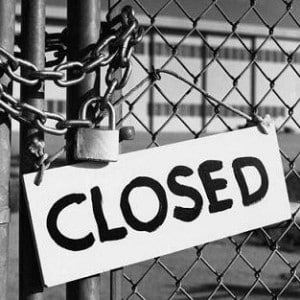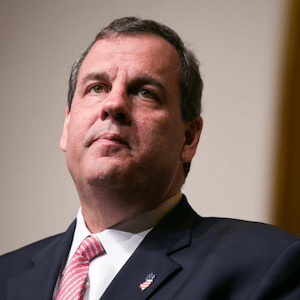 Officials Argue That Collectives Are Operating Like Retail Dispensaries
Officials Argue That Collectives Are Operating Like Retail Dispensaries
By Frances Dinkelspiel
The city of Berkeley has issued “cease and desist” orders to two medical cannabis collectives, leading one to shut its doors.
The 40 Acres Medical Marijuana Growers Collective at 1820 San Pablo Avenue stopped operations in late January after Berkeley Code Enforcement sent it a letter informing the group it was operating in violation of the city’s municipal code.
The Perfect Plants Patients Group, or 3pgs, at 2840B Sacramento Street is still in business.
“It has come to the City of Berkeley’s attention that you are operating a medical marijuana establishment that is dispensing medical marijuana in a non-residential zoning district,” Gregory Daniel, the code enforcement supervisor, wrote to the two collectives on Dec. 8. “The establishment is in violation of the Berkeley Municipal Code … and must therefore cease and desist.”
Daniel also told 3pgs that it is operating less than 600 feet from Longfellow Middle School, which is the minimum distance any cannabis entity can be from a school.
40 Acres believes it has the right to do business on the second floor of 1820 San Pablo Avenue because it was operating there before voters passed Measure T in November 2010, which set out new guidelines for dispensaries and collectives, according to Toya Groves, one of the co-founders of the collective. It should be grandfathered in, she argues.
However, in inspecting 40 Acres, the city of Berkeley also determined that the Soe family, the owners of the building, had illegally converted a permitted dance studio into 11 unpermitted living units and ordered them vacated. So 40 Acres had to close down, she said.
“We haven’t left the space,” said Groves, who said she is no longer closely connected to 40 Acres but is familiar with its situation. “We didn’t move, close down, or cease our collective because we felt we were illegal. We were not an illegal entity… we moved because there were some other liability issues.”
If the landlords or 40 Acres had not stopped operations at 1820 San Pablo Avenue, they, like 3pgs, faced $500 a day in fines, wrote Daniel.
The city of Berkeley has known since February 2011 that 40 Acres was operating in a commercial rather than a residential district, which is required by law. Only Berkeley’s three permitted dispensaries are allowed to operate in commercial zones. Collectives must operate in residential areas and only be “incidental” to a residence.
40 Acres was using a number of the 11 residential units at 1820 San Pablo Avenue. It had grown to 7,000 members and 21 staff members and sold medical cannabis on consignment. 40 Acres offered pipes and bongs for sale, held regular parties, and advertised its services at cannabis fairs, through its website, and briefly, in the East Bay Express. For these reasons, many city officials determined that 40 Acres was operating as a dispensary rather than a cannabis collective.
Groves disagrees with that assessment.
“We were not a dispensary,” she said. “We weren’t in a commercial store front. Under California state law you are able to pool your resources any way we saw fit. So advertising, passing out flyers, it’s pooling our resources.”
Berkeleyside wrote about the situation in September 2011 and the coverage prompted the Medical Cannabis Commission to take up the matter. (Groves was vice-chair of the commission, but has since stepped down.)
Numerous people in the Bay Area’s cannabis community testified before the commission. Representatives from the Cannabis Buyers Club of Berkeley and Patients Care Collective said they objected to 40 Acres and 3pgs since they were acting like dispensaries but did not have to pay dispensary-like taxes. Both collectives had offered to pay city taxes, but, until January 2012, Berkeley was not equipped to give a collectives a business license, which would let them pay taxes.
Despite numerous requests from Berkeleyside and other media for interviews about the situation, and complaints by residents in south Berkeley, city officials did not appear to take any official action until City Councilmembers Jesse Arreguin and Max Anderson asked Acting Manager Christine Daniel on Dec. 6 to look into the matter. The code enforcement officer sent a letter two days later.
Groves said she does not think Chris Smith, the head of 40 Acres, plans to reopen anywhere else, although he has a business license on file with the state to operate a non-profit collective on Ashby Avenue. Calls to G. Whitney Leigh, a San Francisco attorney retained by 40 Acres, were not returned.
Groves said the past few months have been difficult for her and 40 Acres. The sudden closure meant that 21 people lost their jobs. Many of these are people with employment issues who had been trained in bud cultivation and business techniques by 40 Acres.
“In these economic times it’s tragic,” said Groves, who estimated that 80% of the staff were Berkeley residents. “That’s what breaks my heart.”
Groves also said that she felt unsafe after what she considered personal attacks in some of the comments left on Berkeleyside. Even though she uses medical cannabis to help the pain in her right arm, which was severely disabled in a car accident, she does not feel comfortable now seeking out medicine at any Berkeley dispensary because of the controversy.
Before Groves resigned from the Medical Cannabis Commission (she still serves on the Zoning Adjustments Board), she sent a letter suggesting that Measure T be amended to include a new category of collectives, ones like 40 Acres. The Medical Cannabis Commission subcommittee on dispensaries is taking a look at the idea of a two-tier collective system, said Charlie Pappas, a commissioner, who operated the Divinity Tree dispensary in San Francisco until the federal government forced it to shut down.
The fact that two collectives popped up and were operating more like retail dispensaries than small residential-based collectives is a reflection of the weakness of Berkeley’s marijuana laws, said Pappas. And now there are reports that a third large-scale collective has opened up at 1515 Dwight. It is the Greenleaf Wellness Group,which calls itself a dispensary.
“I said to the City Council (a few years ago) that there’s a need for more than three dispensaries,” said Pappas. “That’s why this is happening.”
The situation may get worse. There have been news reports that the federal government has sent a warning letter to Berkeley Patients’ Group on San Pablo Avenue warning it that it must shut down. Officials from BPG have not confirmed this.
“With them and 40 Acres closed that’s literally over 50% of the medicine sold in Berkeley,” said Pappas. The other two dispensaries are really small.”
Source: The Bay Citizen and republished with special permission





